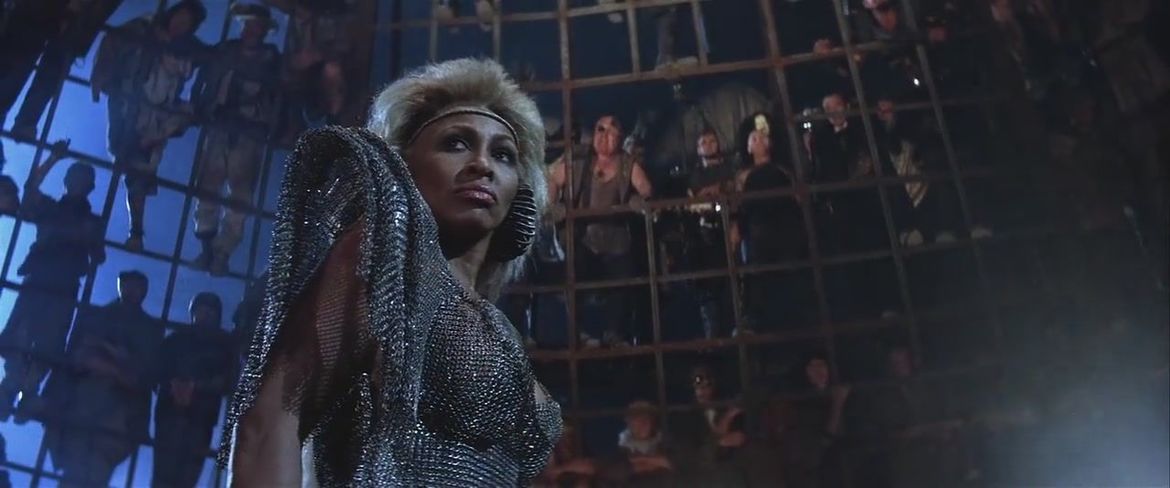As someone who has never gone too long without a visitation from bereavement and the grief that follows the death of a loved one, few things cause me to roll my eyes like people saying upon learning of someone’s passing, “I thought they’d live forever.” But not in the case of Tina Turner.
For once, I can understand this reaction. Because the woman who became known to the world as Tina Turner was a survivor of the first order. She seemed indomitable, not just because of the towering stage presence that belied her modest physical stature. We knew what she’d been through and what she’d overcome. It has been clear for years that Tina Turner was withdrawing from public life and saying farewell to us all, but hearing of her passing on Wednesday shook me even though I knew the Queen of Rock n’ Roll met her end the way she’d taken on every other challenge in her life: head on and on her own terms.
Her bio became a biopic 30 years ago, and even before then, the details of her life had been common knowledge. She was born Anna Mae Bullock in poverty in the Jim Crow South to a couple in a loveless and abusive marriage, and abandoned by both parents before adolescence. In an East St. Louis nightclub, she met an R&B singer of some note who did something few people had ever done regarding Bullock: he saw her star potential.
He molded her, remade her to the specifications of his gaze and desires, and rechristened her Tina Turner. She brought him to a level of stardom he’d never known and used horrific abuse of all kinds to ensure that this success, of which he knew she was the true author, would remain his to control. But she declared her independence, fatefully during the Bicentennial celebration of the nation. She walked away with nothing but her name and her talent and the knowledge of who she was and that was enough for Tina Turner to conquer the world on her own.
It would not be easy. She set her sights on the world of rock in the disco era, an arena far from welcoming to Black women, especially Black women who had their eye on a throne.
I was almost shocked to realize the paucity of her film work. First, there was her show-stopping turn in Ken Russell’s film of The Who’s “Tommy” as the Acid Queen. Whoever approaches this role from now on will have to find a way to interpret it that isn’t in the shadow of Turner, which is no mean feat. She fearlessly embodies this Dionysian pagan goddess with the same ferocity that had brought her to stardom. Sensual, seductive, thunderous.
I have recently seen two new biographical documentaries about iconic African-American singers who liberated their listeners even as they themselves struggled to be free of the guilt and shame a churchgoing childhood had instilled in them about the licentiousness of their artistic personas. In many ways, Black-American performers are forged in this crucible of the sacred and the profane and have to find a way to reconcile the two impulses in their art. If Tina Turner struggled with this, she kept it to herself. But by all appearances, she did not suffer from this torment that comes when faith and art clash. It should be noted that, like nearly all of her generation, Turner began singing in the Black Church, but she left it behind early; Buddhism, not Christianity, was the faith that she turned to, claiming the strength necessary to leave her first husband and save her life.
In an era when Black artists are judged by their perceived cultural authenticity, which leads to a tendency that can be read as pandering, Tina Turner never reminded us of her cultural bonafides. She didn’t need to because who she was self-evident, and she was far more interested in becoming what she wanted to be than reminding us where she came from. That, along with her voice and performing, was part of her genius.
This was what motivated her to turn down the plum role of Shug Avery when no less than Steven Spielberg and Quincy Jones brought her the part of the blueswoman who helps liberate a battered wife in the South in “The Color Purple.” Turner matter-of-factly stated she’d already been there, already done that. Instead, she took the part of Aunty Entity in George Miller’s “Mad Max Beyond Thunderdome.” Instead of choosing something closer to her experience and roots, she dove headfirst into the foreign and fantastic. She played the ruler of a town in a post-apocalypse, a part that called on Turner’s regality, charisma, and fury.
She never had a real role beyond a cameo in another film again, and that may be because Turner wasn’t interested in acting. But I can’t help but think it’s yet another indictment of Hollywood and how few roles it could produce for someone as formidable as Tina Turner.
In time came “What’s Love Got To With It?,” which dramatized her life and her struggle against domestic violence. No doubt, the story served as inspiration for many in similar straits. But I also value that even then, Turner was very honest about the price that came with her honesty. She could have been macho or pretended she was beyond it all; we were certainly all too willing to see her as some invulnerable superwoman. She could have acted as though her ex-husband ceased to cause her pain when their marriage was dissolved.
Instead, she told the truth: that being asked to endlessly discuss the nadir of her life was a form of retraumatization. Brava.
Turner bore her pain and scars and triumphed in every conceivable way. She did that. She did it all. And while I will miss her voice, her face, and her presence, it will live on forever. And I am so happy she has finally left behind the pain of this earth. She’s gone on. Free.












